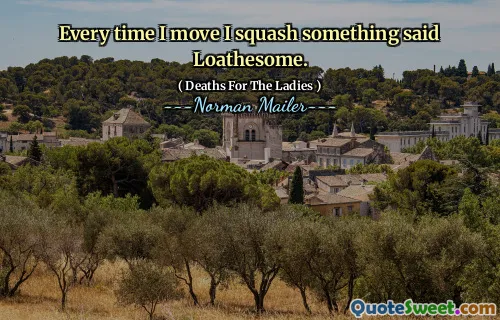I tell you, say the rich,the poor are naughtbut dirty windwelling in air-shaftsover the cindersand droppings ofthe past, theirvoices thickwith greaseand ordure,sewer-greedto corrode the earwith the horrorsof the pastand the voidsof new stupidity.One could drownwaiting for the poorto makeone fine distinction.Yes, destroy ussay the richand you losethe rootsof God.
In "Deaths for the Ladies," Norman Mailer presents a stark contrast between the rich and the poor, depicting the latter as insignificant and unrefined. The poor are portrayed as mere remnants of the past, their existence reduced to a negative force, likened to filthy air in forgotten spaces. Their voices are described as unpleasant, filled with the harsh realities of their circumstances, emphasizing a sense of despair and hopelessness. The rich, in their arrogance, suggest that the destruction of the poor would lead to a loss of spiritual roots, indicating a complex relationship between wealth and morality.
Mailer's text highlights the tension between social classes and the struggle for dignity among the disadvantaged. The stark imagery serves as a critique of societal indifference towards poverty, as the rich dismiss the plight of the poor, waiting indefinitely for them to rise above their circumstances. This creates a grim atmosphere where the rich's disdain for the poor contributes to a cycle of degradation, suggesting that both groups are ultimately intertwined in a larger existential struggle. The narrative challenges readers to consider the deeper implications of wealth and value in society.




